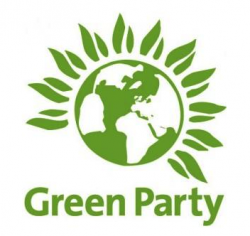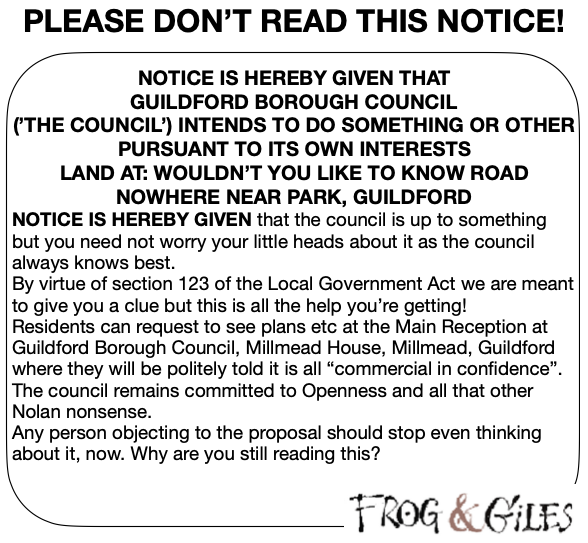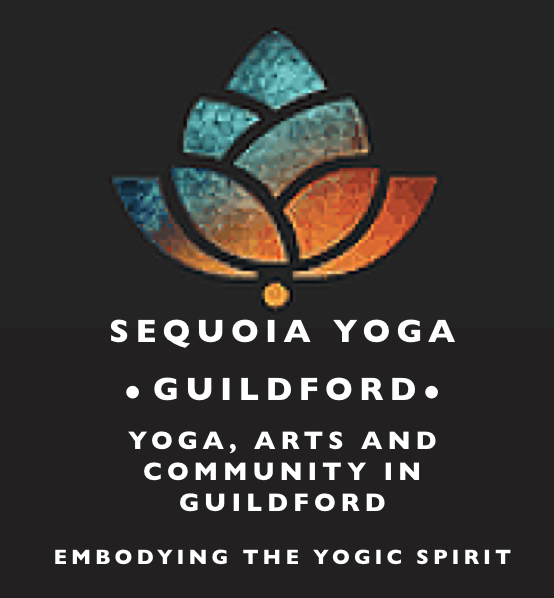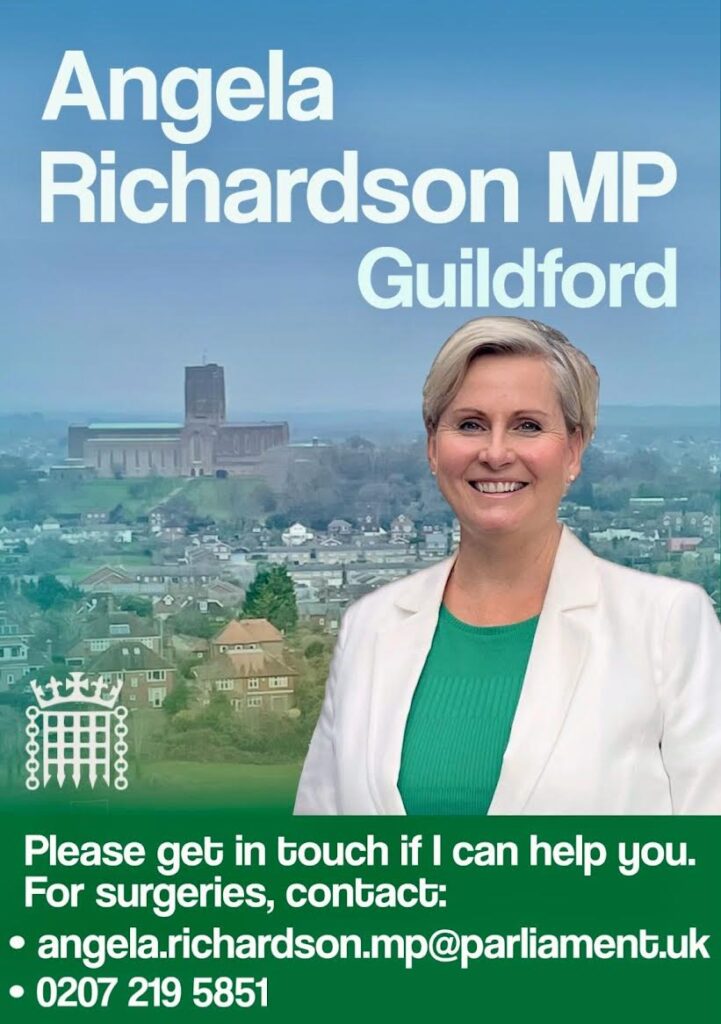- Stay Connected
 Abraham Lincoln
If given the truth, the people can be depended upon to meet any national crisis...
Abraham Lincoln
If given the truth, the people can be depended upon to meet any national crisis...
 Guildford news...
for Guildford people, brought to you by Guildford reporters - Guildford's own news service
Guildford news...
for Guildford people, brought to you by Guildford reporters - Guildford's own news service
Dragon Interview: Dreams of a New Green World as Party Seeks Votes in Mole Valley
Published on: 8 Dec, 2019
Updated on: 8 Dec, 2019
In the third of The Dragon NEWS series covering Mole Valley candidates in the north-east of Guildford borough, Chris Dick interviews Lisa Scott-Conte of the Green Party

Lisa Scott-Conte the Green Party candidate for Mole Valley in the north east of Guildford Borough
Q. Since the 2016 referendum, some politicians have ignored or defied the result of that vote. Your party seems to have sidestepped the biggest democratic exercise in our country’s modern history and wants another referendum. Why should Mole Valley voters trust your party?
A. The Green Party respects democracy and when people voted in 2016, it was with half-information and misinformation. It was completely unclear what we were voting for. Most of the complexities have been exposed only post the 2016 vote and many people I speak to agree a confirmatory vote would be the best way to ensure the latest wishes of the British public will be followed.
Our intention does not disregard the 2016 vote as just “Remain”. It allows people to reconfirm, from a more advised position, and most importantly, to reflect if they have changed their mind. We propose a second referendum so people can re-establish their views, considering the additional information now available.
 Q. The Independent reported this year: “Simply building more houses is not the answer to Britain’s housing crisis.” The Spectator wrote (2018): “Britain does not have a housing shortage. We have a problem with the cost not the availability of homes. This can’t be solved by building more houses, because it is not caused by an insufficiency of houses.” Do you agree with these views and, if so, what should the Green Party’s response be to this?
Q. The Independent reported this year: “Simply building more houses is not the answer to Britain’s housing crisis.” The Spectator wrote (2018): “Britain does not have a housing shortage. We have a problem with the cost not the availability of homes. This can’t be solved by building more houses, because it is not caused by an insufficiency of houses.” Do you agree with these views and, if so, what should the Green Party’s response be to this?
A. The issue with housing is affordability and location. There is a huge need for social housing, but also it is a question of accessibility to transport and towns. Homes can be created by renovating and rebuilding unwanted buildings both ex-factory and industrial buildings. Making building energy-efficient and low carbon. Housing must be near existing transport hubs and also have walking/cycling options, so our young are not forced into car use.
Our communities must not be stripped of their young people because they feel forced to leave their home area so they can have a place of their own. This means we need smaller properties with affordable rent being available in all areas, not only in our bigger towns and cities.
Q. If elected, what measures would you support to tackle climate change?
A. I would bring in an overhaul of public transport, making services frequent and cheap, extending routes and having services running earlier and later. Very importantly I would make them affordable.
Bus and train fares increase and car use gets cheaper. This is not the way we should be going. Times of services are available on apps; this should be integrated so people are easily aware of exactly what time their bus will arrive so no waiting in the cold for extended periods.
I would also incentivise working from home, removing the need to commute, which also further builds respect and love of the place where one lives. This is not only a place to sleep, it is a place where we spend much of our time, rebuilding social cohesion and society.
I will also work to make cycling a real option for the masses, as we see in northern European countries, where they also have hills and snow. E-bikes, adapted bikes and trikes can also be a preferred option for older people and many with disabilities who are not able to drive a car. Having segregated cycle ways wherever possible.
The speed limit within towns will be a default 20 mph which significantly reduces the level of injury in the event of collisions, and will help bring us to zero road deaths. Bringing the speeds on bikes and cars closer also reduces any feeling of conflict between car- drivers and cyclists. A national speed limit of 40mph (other than motorways) will also improve safety.
Q. With a climate emergency declared by Surrey County Council would a Green Party government take measures to further protect our green belt and stop development of countryside and farmland outside the green belt?
A. We need our green fields to capture carbon and grow our food. Building a housing estate reduces that land’s ability to capture rain by 85%, so retaining our green fields is key. It is also vital to keep our ecological system diverse and healthy. We depend on Nature.
Q. Would the Green Party stop or overturn decisions to build on places like the former Wisley Airfield or Effingham Lodge Farm? Where do you personally stand on the Wisley Airfield development?
A. So much housing is being built in the wrong place. We do not support building on green belt nor on green fields where there is any alternative. We have a huge number of alternative buildings that can be renovated or rebuilt and areas rejuvenated by making old housing stock desirable, warm and comfortable.
Q. The Planning Inspectorate and the Secretary of State for Housing have the power to overturn local council planning decisions and effectively sell green belt for enabling development projects, e.g. for a new school. Is there any democracy left in our planning system?
A. Our laws need to be changed so “he final decision on any development is given to local residents. The Conservatives promised to do this, but retained the get-out clause of “national benefit”, meaning the voices of local residents can be ignored.
Q. If the Conservatives win and Brexit proceeds how will it affectthe residents of Mole Valley?
A. If Brexit goes ahead, I have grave worries for so much of life as we know it. Our health service could be put to the mercy of huge drug companies who could charge huge mark-up costs on medications people need to take every day to stay alive.
If we sign up to a trade deal that forces our farmer to use products on our crops that are not approved in the EU, we will be unable to sell our produce to our nearest neighbour and could be forced to compete with countries whose laws allow much cheaper production costs, for example by using antibiotics as growth enhancers and having animal welfare standards far lower than ours.
Q. What problems face the NHS in Mole Valley and, if elected,what would you and your party do to tackle those issues?
A. The NHS has had funding reduced over and over again, putting huge strain on the medical and support staff. Buildings are crumbling due to postponed maintenance. From our manifesto: The Green Party will maintain a publicly funded, publicly provided health service free at the point of use. Money spent on health will remain in the public economy, supporting the NHS rather than going into private companies‘ profits.
We will repeal the Health and Social Care Act 2012, and introduce an NHS Reinstatement Bill, restoring the obligation upon the government to provide a comprehensive health service, abolishing competition. We will repeal the right of the Secretary of State to close hospitals or departments without effective public participation.
Our other policies will contribute to the prevention of illness due to improved physical activity levels and reduced stress. We will expand primary and community care and increase spending on mental health services.
We would immediately increase the overall NHS budget by £12 billion a year to overcome the present funding crisis, increase investment in mental health care and provide for free dentistry, chiropody and prescriptions in England. Thereafter, increase the overall NHS budget annually in real terms by 1.2% to take account of our ageing population.
Provide free social care as well as free healthcare for older people. Provide free social care at the end of life, enabling dying people to choose where they die. We would also provide accessible, local community health centres including out-of-hours care. These will help people access healthcare quickly rather than being a replacement for GPs.
End phoney patient choice. For most of us, patient choice is much less important than getting good treatment at our local hospital or health centre, which is often, for many, the only practical choice. Listen to and work in partnership with third-sector organisations Build systems to measure and improve the ecological impact of healthcare and reduce waste.
This is the full list of candidates standing in Mole Valley:


















Recent Comments